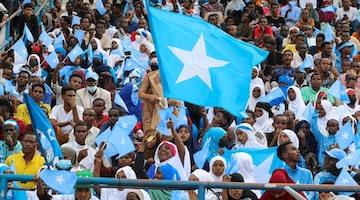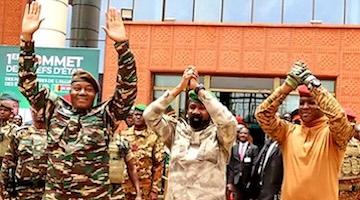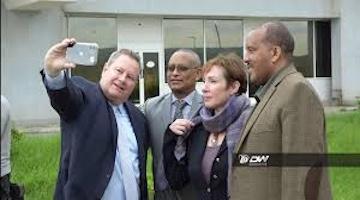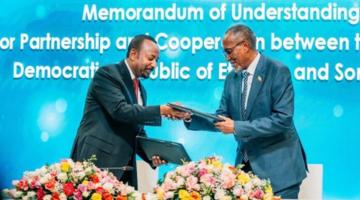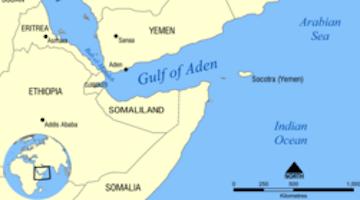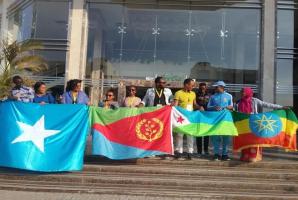Candlelight vigil outside the Ethiopian Orthodox Tewahedo Mekane Selam Medhane Alem Cathedral in Oakland, California, for those who died in the massacre in Wellega, Oromia Region, Ethiopia on June 18.
Conflict in Ethiopia continues to claim the lives of many civilians, as recently happened in the Wellega region.
Ethiopians have been in shock since hundreds, possibly thousands of innocent civilians were massacred in Wellega, an Amhara populated area of Oromia Regional State, Ethiopia, on June 18. Like much of the recent violence in Ethiopia, this took place in the West, not far from the Grand Ethiopian Renaissance Dam, which is the cause of tension over Nile waters between Ethiopia, Egypt and Sudan.
In an August 2020 Brookings Institute essay, The controversy over the Grand Ethiopian Renaissance Dam, John Mukum Mbaku wrote:
“Over the years, Egypt has used its extensive diplomatic connections and the colonial-era 1929 and 1959 agreements to successfully prevent the construction of any major infrastructure projects on the tributaries of the Nile. As a consequence, Ethiopia has not been able to make significant use of the river’s waters. However, as a result of the ability and willingness of Ethiopians at home and abroad to invest in the dam project, the government was able to raise a significant portion of the money needed to start the construction of the GERD. Chinese banks provided financing for the purchase of the turbines and electrical equipment for the hydroelectric plants.”
I spoke to Nebiyu Asfaw, an activist with the Ethiopian diaspora in Denver, Colorado, who organized a Denver vigil for the victims of the Wallega massacres, one of many held in cities around the world.
ANN GARRISON: Nebiyu, first I’d like to review the opening of a program that I was a guest on yesterday on Hello Ethiopia TV:
NEBIYU ASFAW: OK.
HELLO ETHIOPIA: Welcome to Hello Ethiopia TV Friday. It is with a profound regret that we report that the death toll continues to rise in the Wellega, Ethiopia massacre. Some sources report that more than 1500 people lost their lives. The majority of the victims are Amhara. Most of them were women and children. On Saturday, June 18, the TPLF brutally massacred hundreds, possibly 1000s. The senseless killings were executed by the TPLF’s Oromo Liberation Front, also known as Shene, in the Wellega region of Oromia.
AG: I wanted to review that because I’ve been reporting here on the war that the Tigray People’s Liberation Front (TPLF) has waged against Ethiopia in the Amhara and Afar Regions bordering Tigray, but this is the first time we’ve reported on the Oromo Liberation Front. Would you agree with this Hello Ethiopia anchor’s description of the OLF as “the TPLF’s Oromo Liberation Front,” and if so, why?
NA: Yes. The Oromo Liberation Front (OLF) is a militant group that is undertaking an armed insurrection in Ethiopia. It was designated as a terrorist organization alongside the TPLF by the Ethiopian Parliament last year.
In August of 2021, the OLF said it had struck a military and political alliance with the Tigray People’s Liberation Front (TPLF) forces and that their aim was/is regime change by ‘overthrowing the Ethiopian government militarily,’ by taking over Addis Ababa, the capital of Ethiopia.
While neither group was successful in reaching Addis Ababa last year and neither sustained military victories against the government forces, the OLF has been alleged to be responsible for a series of genocidal attacks against civilians, particularly targeting Amhara communities that live in the Oromia region of Ethiopia. These include the gruesome massacre that tragically took the lives of over 1,000 innocent ethnic Amhara civilians on June 18th. We don’t know of any religious element to this, but it should be noted that most of those killed were Amhara Muslims.
AG: Some people at the diaspora vigils for the dead have demanded that Abiy step down, but I was just in Ethiopia for two months and I can’t say that’s a demand I heard then or that I’m hearing now, in conversation with people I met there, although their confidence in him is clearly shaken. What do you think of this demand?
NA: We have been noticing such demands emerging on social media, particularly in the diaspora. There have also been reports of sporadic protests in Addis Ababa and Amhara region. I believe this is a reflection of the public’s growing frustration with the government’s lack of accountability and lack of acknowledgment of the ethnic-cleansing campaigns in Western Oromia. Not only the Abiy government, but also the regional government in the Oromia region is being criticized for its failure to secure the safety of ethnic minorities within its jurisdiction, particularly the Amhara civilians who have been targets of genocidal attacks.
There has also been an allegation that OLF militants are infiltrating the regional government and security forces, and actively participating in the massacres or standing back and thereby becoming complicit.
Prime Minister Abiy confirmed the infiltration of the regional government by OLF militants in one of his recent speeches. The big question emerging is, “Why is the government not able to clean its rank and file, and execute its #1 responsibility of ensuring the safety of citizens?”
There was also an expectation that a state of emergency would be declared in Western Oromia, and that the federal military would then intervene to secure the safety of the public. While the government is currently on a counteroffensive against the OLF militants, the Prime Minister has not declared a state of emergency.
AG: Do you see a way forward?
NA: Yes, I think a lot is expected from the Ethiopian government to secure the safety of citizens, halting these targeted attacks against ethnic Amharas and other minorities in Oromia. That includes declaring a state of emergency and having the federal army take over the area and temporarily administer it with a central military command. Because at this point there’s no telling whether the worst may be yet to come. The safety of innocent citizens must be the federal government's most urgent priority.
While the federal army is conducting a counteroffensive against the rebels, people expect more from the government than business-as-usual.
A long-term solution that is not being talked about is the abolition of the ethnic federal system and ethnic politics in Ethiopia. The root cause of all this chaos in Ethiopia is the ethnic federal system and the politicization of people’s ethnicity and tribe. This system of ethnic states and ethnic identity cards is the only such system left in the world.
It's an apartheid-like winner-takes-all system that gives all the rights to the majority ethnic group of any given region without civil rights or protection for minorities. Until this system is removed and replaced with a civil system, these kinds of things are likely to continue to happen.
AG: Violence often springs up around the discovery of immense resource wealth, even if it’s not obviously caused by resource extraction interests. For example, fishing communities around Lake Albert, on both the Ugandan and Congolese sides, began to experience violence after the discovery of oil there.
And here, in 1975, at the time of the violence on the Pine Ridge Reservation that left Leonard Peltier in prison, there were mining corporations moving into the Black Hills, as described in the documentary Incident at Oglala: The Leonard Peltier Story.
It's usually difficult to identify or prove a connection, but it's still worth noting. It seems that much of the recent violence in Ethiopia has taken place near Ethiopia’s central-western borders, near the Grand Ethiopian Renaissance Dam, a huge hydropower resource with the potential to transform Ethiopia. Do you agree?
NA: Yes, absolutely. Water is the new oil and Ethiopia has it. The massive Grand Ethiopian Renaissance Dam (GERD) will produce enough clean energy to provide power to over 200 million people in Ethiopia and beyond throughout East Africa. The GERD will quadruple the amount of electricity produced in the country. Millions of Ethiopians will have access to electricity for the first time. Currently, over 66% of Ethiopia’s 115 million citizens lack power. Once operational, the dam will provide electricity to over 76 million Ethiopians.
The surplus electricity produced by the GERD, will be exported to neighboring countries, generating billions of dollars in income for Ethiopia.
Water is the new oil that will lift Ethiopia out of poverty to become a middle-income country. This will enable the transformation of the entire region and accelerate industrialization and commerce.
There have been disputes with Egypt and Sudan over water rights to the Nile. That has highlighted concerns over individual nations’ rights to water, and it points to a shift in political power on the continent. Egypt and Sudan have openly campaigned to stop the filling of the dam and even made military threats.
The fact that these unprecedented conflicts and ethnic massacres are happening in Western Ethiopia, in proximity to the GERD, is fueling speculation that the conflicts in Ethiopia are geopolitical conflicts or water wars by proxy. That is why it’s absolutely important for Ethiopians to work out political differences and stay united through this very difficult and tragic time in the nation’s history.
Ann Garrison is a Black Agenda Report Contributing Editor based in the San Francisco Bay Area. In 2014, she received the Victoire Ingabire Umuhoza Democracy and Peace Prize for her reporting on conflict in the African Great Lakes region. She can be reached at ann(at)anngarrison.com.



